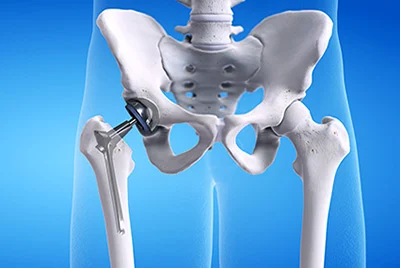IMR Materials Testing Technical Blog
MEDICAL DEVICE TESTING SERVICES
Medical device testing to ensure material quality is of the utmost importance when intended for implantation in patients. Failure to meet the rigorous standards of medical device OEMs can have devastating results for patients and their families. Ensuring your materials are made to your specifications, and investigating failures promptly and accurately, are both critical to meeting the medical industry’s strict quality standards.
IMR Test Labs is an accredited materials testing lab providing analytical services to the medical device and dental industries. We have extensive experience working with medical OEMs to verify raw materials, handle overflow testing from internal labs, test finished products, and provide support to research and development efforts.
Our facilities conduct testing on metals, polymers, powders, coatings, ceramics, and finished products to support medical OEMs and their suppliers.
MEDICAL DEVICE CLEANLINESS TESTING

IMR Test Labs performs testing for medical device manufacturers to avoid the major risk of potential adverse reactions from contaminants on implants. Medical devices intended for permanent implantation must meet stringent cleanliness standards to minimize the risk of post-surgery complications. To ensure the viability of such devices, their medical cleanliness must be determined before they can be used in practical applications.
MEDICAL DEVICE COATINGS TESTING
Modern orthopedic and dental implant devices often incorporate porous coatings or structures that are designed to promote bone infiltration for biological fixation of the implant. These coatings are often subjected to shear stresses in normal use and the coating must not shear off. Data from these tests can be used to satisfy regulatory requirements, as well as comparing/evaluating coating types and suppliers.
RELEVANT ACCREDITATIONS
Click here for a complete list of accreditations and certifications for all IMR Test Labs locations
CHEMICAL ANALYSIS
Alloy Chemistry/PMI
Chemical Resistance
Chromium Analysis
Contaminant Analysis
DSC Analysis
FTIR Analysis
Hazardous Substance Testing
Heavy Metal Impurities
ICP Analysis
Ionic Contamination
OES Analysis
Particle Size of Powders
Polymer Analysis
Sieve Analysis
Surface Cleanliness
TGA Analysis
Thermal Analysis
TMA Analysis
Total Extractables
Total Organic Carbon
Trace Additive Analysis
Trace Element Analysis
Wear Debris
XRF Analysis
XRD ANALYSIS
Ca:P Ratio of Hydroxyapatite
Percent Crystallinity
Phase Identification
Powder Morphology
FATIGUE TESTING
3 Point Bend Fatigue
Axial Fatigue
Axial/Torsional Fatigue
Coating Shear Fatigue
High Cycle Fatigue
Low Cycle Fatigue
Rotating Beam Fatigue
MECHANICAL TESTING
Bond Strength Testing
Coating Adhesion
Coefficient of Expansion
Coefficient of Friction
Compressive Properties
Flexural Properties
Hardness (Brinell, Rockwell, Barcol, Durometer, Shore)
Impact Testing
Tensile Testing
CORROSION TESTING
Passivation Testing for Stainless Steel (ASTM A967, QQ-P-416)
METALLURGICAL ANALYSIS
Alpha Case
Beta Transus Determination
Carbide Rating
Case Depth
EDS/EDX Analysis
Failure Analysis
Grain Size
Inclusion Rating
Intergranular Attack (IGA)
Intergranular Oxidation (IGO)
Machining Evaluations
Metallography
Microhardness (Knoop, Vickers, Macro-Vickers)
Microstructure
Plating Thickness
Root Cause Analysis
SEM Analysis
Solderability
Stress Corrosion Cracking Susceptibility (SCC)
Thermal Spray Coating Analysis
Weld Evaluation


